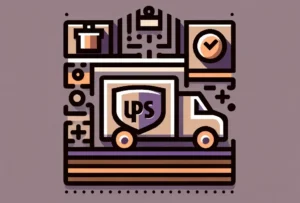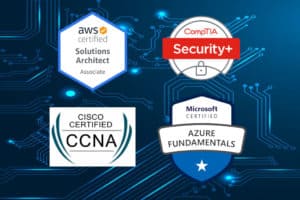Gone are the days when ‘mainframe’ sounded like an antiquated buzzword from the punchcard era—now it’s the solid rock many big businesses can’t do without. As sushi rolls and smartphones get trendier, there’s a beast in the basement keeping our digital world afloat, and it’s a career jungle out there waiting to be explored.
This post will head straight to the heart of the matter, giving you a clear view of the opportunities in the mainframe world and what you could expect if you take the leap.
Quick Takeaways:
- Mainframes remain vital in modern business—unparalleled in reliability, security, and transaction handling.
- With experts retiring, a new wave of mainframe professionals is in high demand — a prime opportunity for career starters and shifters.
- A mainframe career offers diverse, long-term growth potential, blending old and new tech for those who actively pursue continuous learning.
Is Mainframe Still Relevant Today?
In a world buzzing with talk about the cloud and quantum computing, you might wonder if mainframes have been left in the digital dust. Think again! Mainframes are the unsung heroes in many large corporations, serving as the foundation for critical operations. They’re celebrated for their robust reliability, top-notch security, and unmatched processing power capable of handling billions of transactions daily without breaking a sweat.
Take a walk through the industries like banking, insurance, and various government agencies, and you’ll find mainframes silently powering the show. Banks, for instance, rely on mainframes for their round-the-clock availability and the ability to process enormous volumes of transactions. Bottom line: where there’s a need for heavy lifting in complex, data-centric environments, mainframes flex their muscles.
What Can You Do in a Mainframe Career?
Mainframes might sound old-school, but careers in this field are anything but outdated. Here’s a peek into the variety of roles you could dive into within the mainframe ecosystem:
- Systems Programmer: Keep the mainframe’s heart beating by managing its software and ensuring systems run smoothly.
- Application Developer: Create and maintain the crucial applications that run on mainframes, blending old-school COBOL with modern languages like Java.
- Database Administrator (DBA): Guard the treasure trove of data within mainframes, optimizing database performance and integrity.
- Operations Analyst: Be the detective who troubleshoots and resolves hiccups in the mainframe operations, ensuring a seamless workflow.
These roles don’t just require a knack for legacy tech; there’s a growing demand for those who can straddle the line between classic systems and today’s cutting-edge languages. It’s a unique mix—a digital pastiche, if you will—of old and new that keeps the mainframe world ticking.
How’s the Job Market for Mainframe Professionals?
Now let’s talk turkey. Data shows that the job market for mainframe professionals is buzzing. With many current experts nearing retirement, there’s a real demand for fresh talent ready to take the reins. So, we’re looking at a candidate’s market here—if you’ve got the goods, companies are likely itching to bring you on board.
But here’s a golden nugget of advice: While it’s important to be well-versed in mainframe-specific languages like COBOL, JCL, and CICS, set yourself apart by mastering database management systems such as DB2 and gaining familiarity with Linux on IBM Z. This expands your toolkit and makes you a standout candidate.
And consider this: the perceived skills gap in the mainframe field can be your ticket to a fulfilling career. Employers are eager to snag tech-savvy individuals who can pair modern skills with a willingness to engage with mainframe technologies. For the keen learner, this not only spells opportunity but also offers a chance to become an early and influential player in the next wave of mainframe innovation.
Keep in mind, the career journey in mainframes isn’t a sprint; it’s more of a long-distance run, rich with opportunities for those who invest in learning. Stay curious and receptive to both legacy and emerging technologies—if you do, the mainframe world is your oyster.
Can You Grow Within a Mainframe Career?
Absolutely! The path to career growth in the mainframe world is not just alive and kicking but can be quite a ride, with plenty of room to clamber up the ladder. The mainframe sphere spans a diverse range of roles, from system programming to application development, operations management, and beyond.
For starters, you might cut your teeth as a Mainframe Developer or System Operator, honing skills in the ins and outs of day-to-day operations or coding. Moving up, becoming a Mainframe System Programmer offers a chance to get your hands dirty with the system’s internals, ensuring everything ticks along nicely under the hood.
But that’s just the beginning. With experience under your belt, you could steer towards Lead Architect positions, mapping out the main architecture for the company’s mainframe systems, or perhaps an IT Manager role, where you’re at the helm, steering the mainframe team to success.
And let’s not forget the consultants – those seasoned pros who’ve seen it all. As a Mainframe Consultant, you could be the go-to guru for businesses far and wide, offering your hard-earned wisdom.
Throughout your journey, keeping your toolkit sharp is key. Dive into the latest languages and technologies, grasp the nuances of cloud integrations, and always be prepared to show that old dogs—or in this case, mainframes—can indeed learn new tricks.
How Do You Kickstart a Career in Mainframes?
If you’re itching to wade into the world of mainframes, here’s how to dive in:
Education: A degree in computer science or a related field is a solid starting point. However, some mainframe positions value specialized knowledge over degrees. Look for courses or training programs with a focus on mainframe technology.
Certifications: Adding feathers to your cap is never a bad idea. IBM offers several mainframe certificates – the IBM Z® certifications could be your tickets to recognition in the mainframe realm.
Networking: In the tech world, who you know can be just as crucial as what you know. Rub shoulders at conferences, join forums like IBM Z and LinuxONE Community, and don’t forget to leverage LinkedIn to connect with mainframe mavens.
Internships: Keep an eye out for companies offering internships or cooperative education programs. They can provide invaluable hands-on experience.
Mentorship: Look for a mentor who’s navigated the mainframe waters. They can provide guidance, insider tips, and may help open doors to opportunities.
Continuous Learning: The tech landscape is a shifting one, and staying relevant means staying informed. Websites like Interskill Learning offer up-to-date mainframe courses.
It’s essential to recognize that the mainframe world values practical experience alongside academic prowess. Finding ways to tinker with mainframe systems, whether through simulated software or actual hands-on experience, can set you apart from the crowd.
To stand out in today’s job market, focus on building a portfolio that showcases an understanding of not just legacy systems, but also modern innovations like COBOL integration with modern APIs, or mainframe data analytics.
And here’s a nugget of advice you won’t stumble upon very often: Mainframe folks are seeking talents who can bridge the generation gap. If you can translate the mainframe-speak to the millennials or zoomers in your workplace or convey the agile methodologies back to the mainframe veterans, you’ve got a golden arrow in your quiver.
In wrapping up, embarking on a mainframe career is like diving into a sea brimming with long-term opportunities. With the right mix of skills, eagerness to learn, and a bit of networking savvy, you can forge a path that’s both rewarding and substantial. Keep pushing the envelope, and remember, the mainframe universe is only as limited as your ambition allows it to be.








